Space
Sign up for our newsletter
We summarize the week's scientific breakthroughs every Thursday.
-
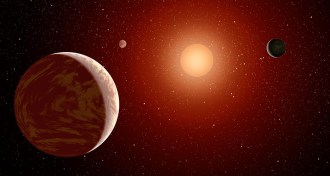 Astronomy
AstronomyNearby exoplanet trio new target in search for life
Three nearby exoplanets might be good spots to go looking for signs of alien life.
-
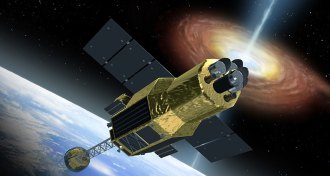 Astronomy
AstronomyJapan’s latest X-ray telescope is officially dead
The Japanese space agency has officially declared its latest X-ray telescope a loss.
-
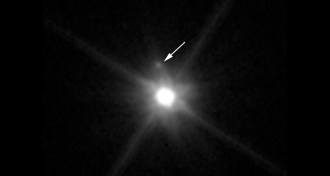 Planetary Science
Planetary ScienceTiny moon orbits dwarf planet
Hubble Space Telescope images from April 2015 show that the dwarf planet Makemake has a tiny moon.
-
 Planetary Science
Planetary ScienceHubble telescope finds small moon orbiting dwarf planet Makemake
Hubble Space Telescope images from April 2015 show that the dwarf planet Makemake has a tiny moon.
-
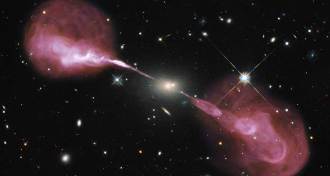 Astronomy
AstronomyGas blasts from black holes show surprising alignment
Unexpected alignment of galactic gas geysers might offer new insight into how galaxies and black holes arise from the cosmic web.
-
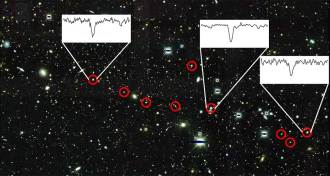 Cosmology
CosmologyAncient dwarf galaxy was heavy-element factory
A rare event in an ancient galaxy left traces of heavy elements in its stars.
-
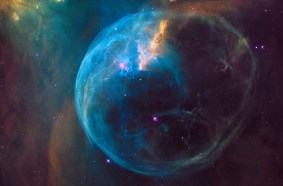 Astronomy
AstronomyHubble telescope snaps stunning pic for its 26th birthday
For its 26th anniversary, the Hubble Space Telescope snapped a picture of star blowing bubbles in space.
-
 Space
SpaceTrying to find ET and our place in the universe
Editor in Chief discusses the search for life beyond Earth.
By Eva Emerson -
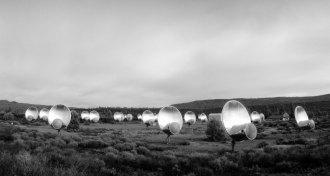 Science & Society
Science & SocietyHumans have pondered aliens since medieval times
People have been fascinated with extraterrestrials for centuries. If only aliens would get in touch.
-
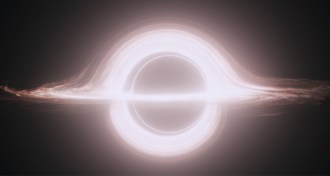 Cosmology
CosmologyHow to make gravitational waves ‘sing’
A rapidly spinning black hole would make a unique pattern of gravitational waves when it sucks in a smaller companion.
-
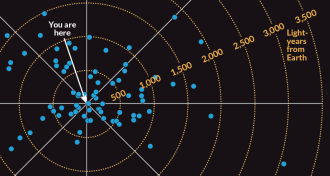 Astronomy
AstronomyTo find ET, look at who’s (maybe) looking at us
To listen for aliens, two astronomers suggest that we focus on stars whose inhabitants can see Earth periodically cross in front of our sun.
-
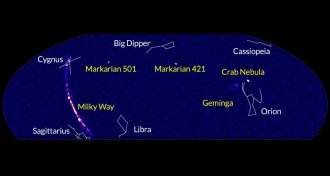 Cosmology
CosmologyNew sky map charts previously unknown gamma-ray sources
A new map of the sky from the High-Altitude Water Cherenkov Observatory charts the cosmic origins of high-energy photons.